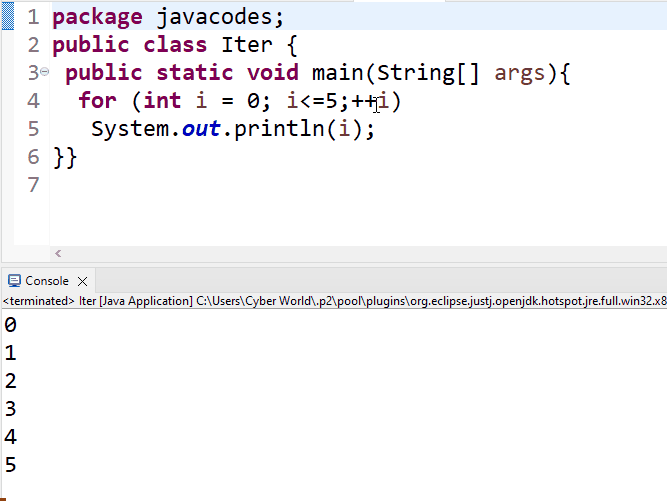In Java programming, iteration is a vital functionality to access various elements in an appropriate manner. This can be achieved with the help of the “pre-increment(++i)” and “post-increment(i++)” operators in Java that iterate through the specified elements or increment the defined values and return them individually.
This tutorial will state the core differences between the Java “pre-increment(++i)” and post-increment (i++)” operators in Java.
What is the Difference Between “++i” and “i++” in Java?
The pre-increment operator “++i” is used in the code if there is a need to increment the value by “1” and then utilize it. On the other hand, the post-increment operator “i++” comes into effect when it is required to use the current value, and then increment the value by “1”. However, both operators perform in an identical manner.
Example 1: Applying Both the Pre-Increment(++i) and Post Increment(i++) Operators to Return the Same Outcome
This example applies both the pre and post-increment operators in the “for” loop to return the same outcome. In the first case, the pre-increment operator “++i” is utilized, as follows:
public class Iter {
public static void main(String[] args){
for (int i = 0; i<=5;++i)
System.out.println(i);
}}
In the above block of code, apply the “for” loop that iterates along the integers from “0” to “5” by incrementing them first based on the applied pre-increment operator “++i” and returns them.
Output

The output implies that the integers are iterated and returned accordingly.
The following demonstration utilizes the post-increment operator “i++” along with the “for” loop to perform the discussed iteration and retrieve the same output:

Example 2: Applying Both the Pre-Increment (++i) and Post Increment(i++) Operators to Return a Different Outcome
In this specific example, both the discussed operators can be applied to generate a different outcome. It is such that the post-increment operator(i++) does not affect the constants:
public class Iter {
public static void main(String[] args){
int x = 1;
int y = 1;
System.out.println("Pre Increment -> "+ ++x);
System.out.println("Post Increment -> " + y++);
}}
In these code lines:
- Initialize the stated variables that need to be incremented.
- After that, associate the pre-increment operator “++x” with the former initialized value and the post-increment operator “y++” with the latter defined value.
- Lastly, observe the outcome in both scenarios.
Output

In this output, it can be verified that the pre-increment operator(++i) increments the value while it is not the case with the post-increment operator(i++) i.e., the value remains the same.
Conclusion
The pre-increment operator “++i” is used if there is a need to increment the value by “1” and then utilize it whereas the post-increment operator “i++” comes into effect when it is required to use the current value, and then increment it by “1”.
